
Gaza
Strip town of Beit Hanun a year after the war began. (Photo: AFP" width="300" height="199" /> Destroyed buildings in front of a mosque in the northern Gaza Strip town of Beit Hanun a year after the war began. (Photo: AFPHebron, 22 Ramadan 1436/9 July 2015 (MINA) – “Conditions are really tough here,” said 12-year-old Shadi Barakeh. “It’s cold at night and I’m afraid when I hear dogs bark and the wind whistle.”
“The clothes I have on are the only ones I have left. I go to school in them and wear them in the tent, too,” Ma’an News Agency quoted by Mi’raj Islamic News Agency (MINA) as reporting.
The child’s account is among several testimonies collected by Israeli rights group B’Tselem looking back on a year since Israel began a bloody offensive on the Gaza Strip that ultimately left more than 2,200 Palestinians dead, most of them civilians.
The testimonies paint a startling picture of the devastation wrought on ordinary Gazans’ lives during the 50-day conflict.
Also Read: Rights Group: Israel Killing Eight Palestinians Daily Despite Gaza Ceasefire
As the war grew closer to Shadi’s family home in Abasan al-Jadidah in southern Gaza, they evacuated and took refuge with relatives.
Two weeks later, however, his father did not return when he went out shopping. Friends later called to say that he had been injured.
The 12-year-old recalled: “We looked for my father in a few different wards until we reached the refrigerators in the morgue. That’s where we found him. He was dead. My mother can’t stop crying, I see her crying for hours on end.”
When his family returned to their home after the war they found it destroyed. They now live next to its ruins “in a tent we made out of pieces of cloth and mats.”
Also Read: Palestinian Detainees in Gilad Camp Face Severe Abuse and Daily Raids: Reports
“But that’s not what makes me sad,” said Shadi. “I’m sad because my father is dead.”
“If he were here with us, it would make up for everything. And he would buy us clothes and a new house. I feel that my life has really changed since my father was killed. We have no happiness now.”
‘I have nothing left’
Maryam Abu Raya, a 65-year-old resident of Gaza City, described to B’Tselem the day her apartment building was destroyed.
Also Read: Internet and Communication Services Cut Off in Gaza City
“The phone rang and (my son) Muhammad’s wife told me that we all had to leave the building because she’d received a phone call saying it was about to be bombed. I opened my front door and saw other tenants going down the stairs carrying belongings.”
“We were all in shock and no one understood what was happening. Some people said the missiles would be aimed at the eleventh floor, where Hamas had a communications office.”
She managed to flee with her sons and their families to a friend’s home nearby.
“A few minutes later,” she said, “we heard two blasts and then the tower collapsed. I was shaking like a leaf. My heart was beating so fast, I thought it would jump out of my chest. Everything was destroyed, our three apartments.”
Also Read: Al-Qassam Places Full Responsibility on Israel for Rafah Confrontation
“I put 17 years into the apartment I owned and everything in it,” she said. “I still cry over the apartments that were destroyed for no reason and dream of going back home… but it will never be the same.”
Another resident of Gaza City, Mayadah Zaqut, 42,described the horror she and her husband, Ahed, woke to at the end of July.
“We woke up suddenly from the sound of bombing nearby. Ahed went to check what had been hit. He saw nothing and went back to bed. I went to the kitchen. A few minutes later, our apartment was bombed.”
“Everything filled with dust and I didn’t know exactly what had happened, who was alive and who had been injured.”
Also Read: Israeli Settlers Establish New Outpost in Palestinian Land, East Jerusalem
It was not until afterward that her husband was uncovered from the debris, taking his last breaths.
“I sat on the stairs and screamed and wept when I heard Ahed’s brother say he was dead,” recalled Mayadah.
She added: “One of the things that hurt most was that I didn’t have time to take any memento of Ahed from the apartment before it was bombed…. It all went up in flames, even our wedding photos. I have nothing left to remind me of the family life I once had.”
‘Pictures of the dead on walls and doors’
Also Read: Gaza Death Toll Reaches 69,176 as Casualties Continue Despite Ceasefire
Last summer’s war was the third in Gaza in six years, and by far the deadliest and most destructive of the three.
The commissioner general of UN relief agency UNRWA, Pierre Krahenbuhl, warned on Wednesday that the root causes of the conflict remain unaddressed.
“The despair, destitution and denial of dignity resulting from last year’s war and from the blockade are a fact of life for ordinary people in Gaza,” he said.
Large swathes of Gaza remain in ruin and work has not yet begun on the reconstruction of some 18,000 homes that were totally destroyed during the war.
Also Read: WHO, OCHA Warn of Worsening Gaza Crisis Ahead of Winter
Maha Abu Mutlaq, a 17-year-old twelfth grader from Khuzaa in southern Gaza, told B’Tselem of the difficulties of returning to a normal life in the aftermath of the conflict.
Before school began at the end of the summer, her family moved into an unfurnished apartment, where all they had were “a few mattresses and blankets we managed to get at the school we sheltered in.”
“The mood in Khuzaa is terrible and makes me not want to study,” Maha said. “The streets and houses are in ruins. Wherever you go you see wreckage and pictures of the dead on walls and doors.”
“When the school year began, it was very hard for me to concentrate. I’d sit for hours and try to study but couldn’t get much done. I was haunted by all the horrible things I had seen during the war.” (T/P010/R03)
Also Read: Unexploded Israeli Ordnance Kills Palestinian Child in Khan Younis
Mi’raj Islamic News Agency (MINA)
Also Read: Irish Football Association Votes to Push UEFA for Israel Suspension





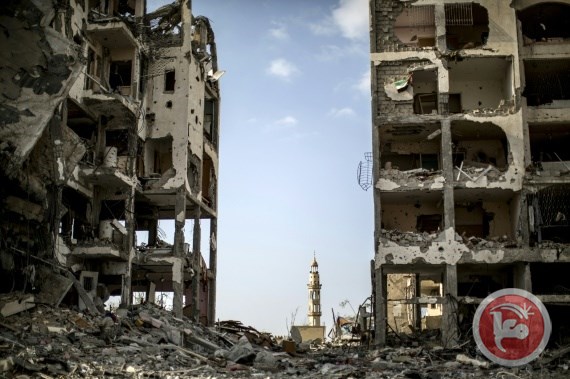



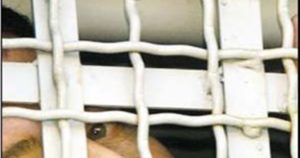


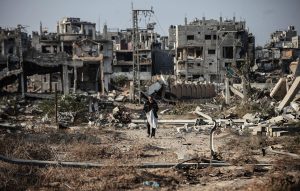

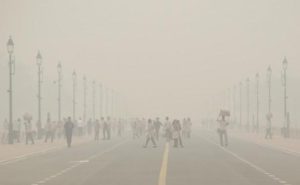
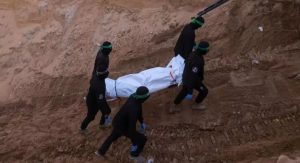

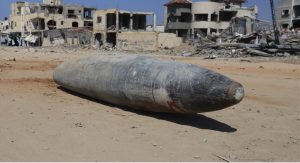
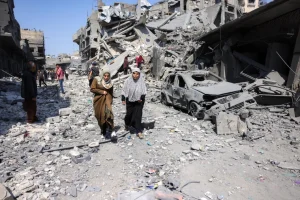
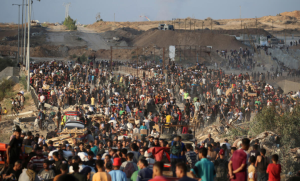




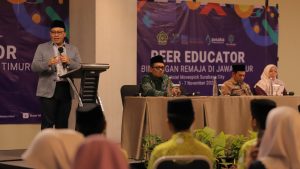

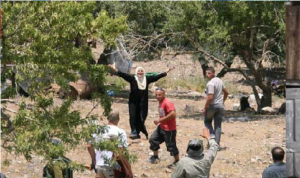
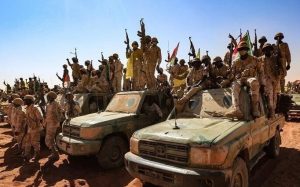



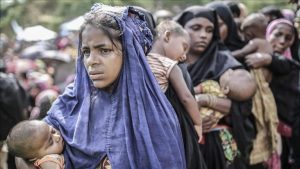



 Mina Indonesia
Mina Indonesia Mina Arabic
Mina Arabic